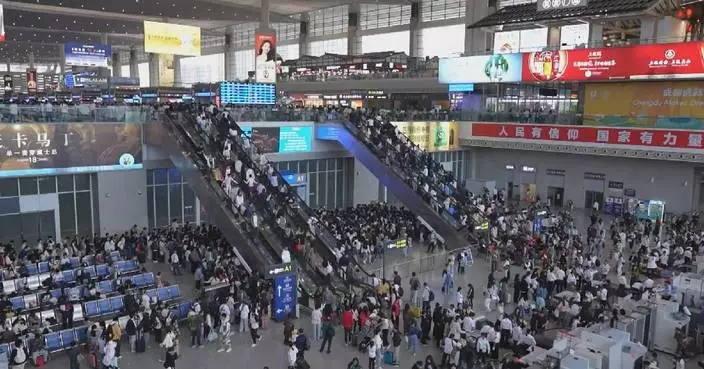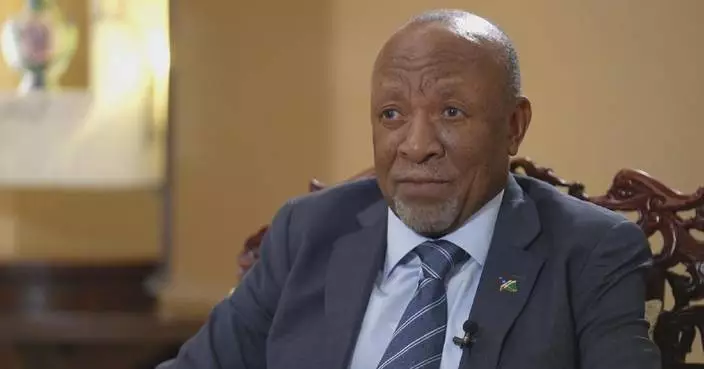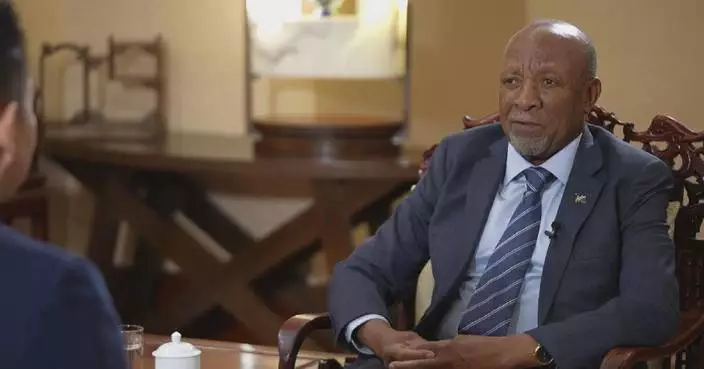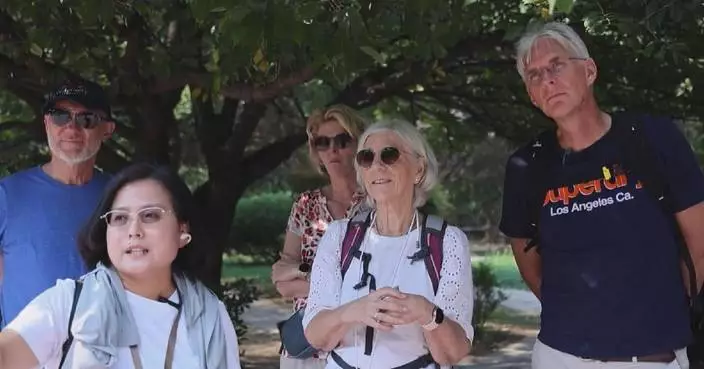A documentary retracing the legendary journey of the Italian explorer Marco Polo jointly produced by China and the UK premiered in London on Wednesday.
Titled "In the Footsteps of Marco Polo," the film stars Stanley Johnson and Max Johnson, father and brother of former Prime Minister Boris Johnson.
The father and son duo followed Marco Polo's 13th-century route through China, starting from Khunjerab, the only land port on the China-Pakistan border, traversing the highlands of Inner Mongolia, and ending in Beijing.
"[China] is very good country, and Chinese are very good people. For me, the most memorable moment of the trip was seeing Stanley began the journey in Xinjiang on the border with Pakistan, and at the top there, and I can see in his eyes how exciting it was for him. We were following the footsteps of Marco Polo, so this is a beautiful moment for me," so this is a beautiful moment for me, said Max Johnson in an interview with China Central Television.
Stanley Johnson said in his speech at the premiere that Marco Polo built bridges of communication between East and West, and it is even more significant to retrace this route as people face a series of global problems that require coordination between two sides.
Chinese Ambassador to Britain Zheng Zeguang said in his opening address that the movie is not only about pursuing dreams but also about China-Britain collaboration.
This movie will inspire more people in Britain to make similar travels, meet the people, learn the culture, and appreciate the landscapes and accomplishments in China, said Zheng, inviting the British people to visit China.
Marco Polo was an Italian merchant, explorer and writer. His travels are recorded in Book of the Marvels of the World, a book that described to Europeans the wealth and great size of China, and other Asian cities and countries.
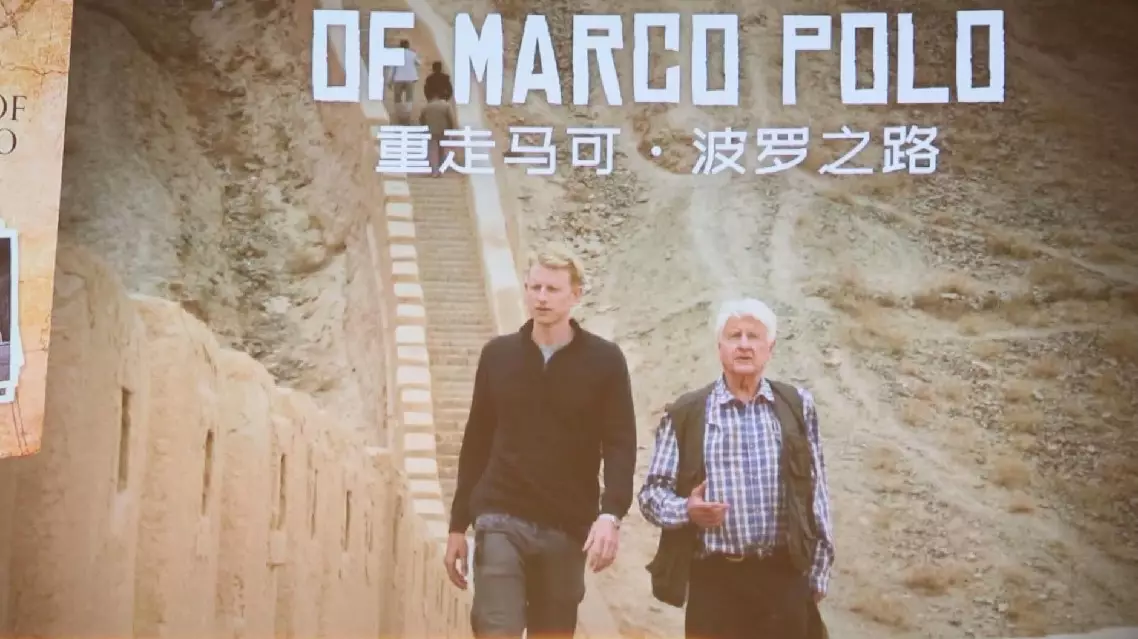
Documentary retracing Marco Polo's footprint in China premieres in London
Israeli strikes on Lebanon have left many people in urgent need of medical care, adding pressure to an already struggling healthcare system of the country.
Since Sept. 23, the Israeli army has been conducting intensive airstrikes on Lebanon in a dangerous escalation with Hezbollah.
Lebanese Health Minister Firas Abiad reported on Thursday that a total of 1,974 people have been killed, including 127 children and 261 women, and 9,384 others wounded in Lebanon since the onset of the Hezbollah-Israeli conflict in October last year.
With NGOs and medical teams being targeted in the escalating conflict, the Lebanese government is urging the international community to advocate for a ceasefire.
Following a devastating airstrike on a medical center, residents quickly began to clean up. Paramedics and volunteers scrambled through the debris, hoping to find any signs of life.
The missile struck the third floor, which houses the hospital's rehabilitation center. Only a few scattered items remain amidst the rubble, including surgical gowns and gauze.
"I was at the center, coming down the stairs to grab supplies. As soon as we got the people out, the attack struck at 12:11. I went back up but left a few wounded behind; the rest became martyrs," said a witness.
NGOs and medical teams have been targeted amid Israeli strikes. Earlier on Sept. 28, another devastating strike leveled a medical center, killing 11 health workers and injuring 10 others.
The Lebanese Civil Defense also reported that one member was killed and another critically injured during Israeli airstrikes on the southern suburbs of Beirut on Sept. 27.
These incidents were not isolated. Since last October, attacks on medical facilities have become alarmingly frequent, forcing numerous centers out of service. According to the government, this has become a repeated tactic.
"We've seen almost more than 20 (between) hospitals and medical centers have been attacked. We've seen almost 130 vehicles that have been targeted. So, unfortunately, the same playbook that we saw in Gaza where hospital facilities, health facilities and health personnel were targeted (here) as well. Israel are repeating their same playbook in Lebanon as well," said Firas Abiad, Lebanese Minister of Public Health.
The situation is becoming increasingly unsustainable as hospitals struggle to keep up with the growing number of casualties. The relentless airstrikes and widespread destruction have left many medical facilities barely functioning, pushing the healthcare system to its limits.
However, the health minister warns that medical aid alone won't resolve the crisis.
"This sore situation cannot be solved with more medication or more medical supplies. The only way to be able to control, to be able not to move into a very bad humanitarian situation in Lebanon or even regionally, as we see this conflict starting to expand, is to have an immediate ceasefire," said Abiad.
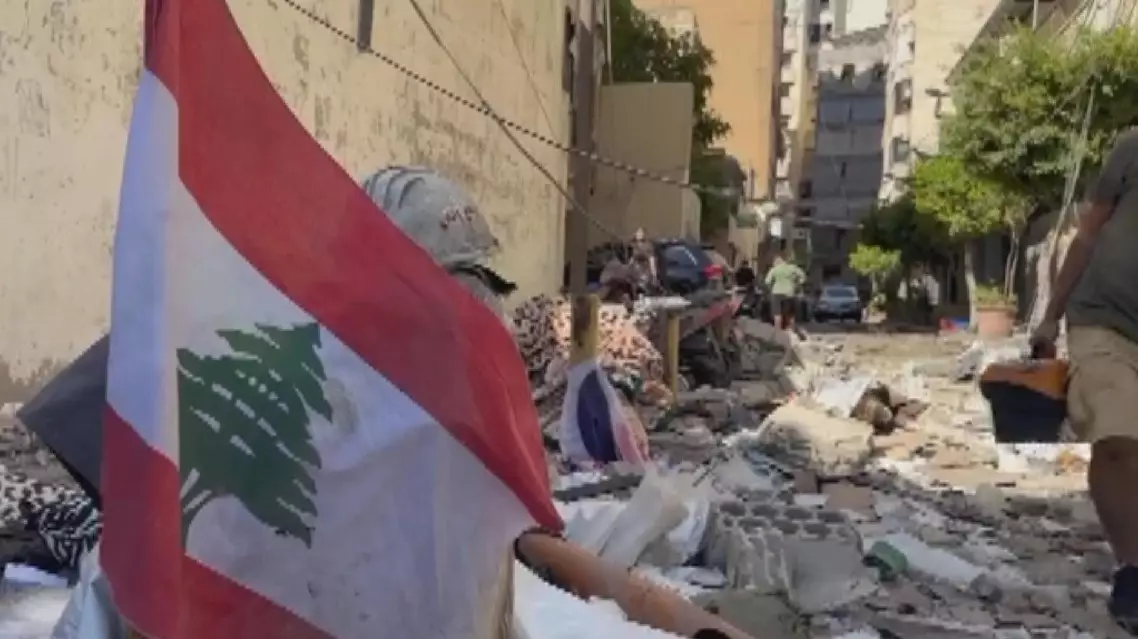
Lebanon faces humanitarian crisis amid lack of medical supplies




